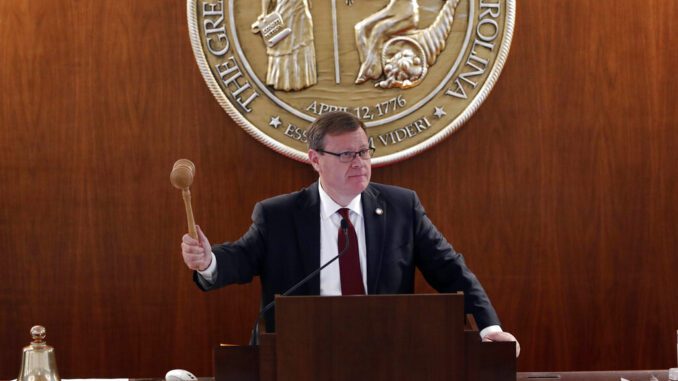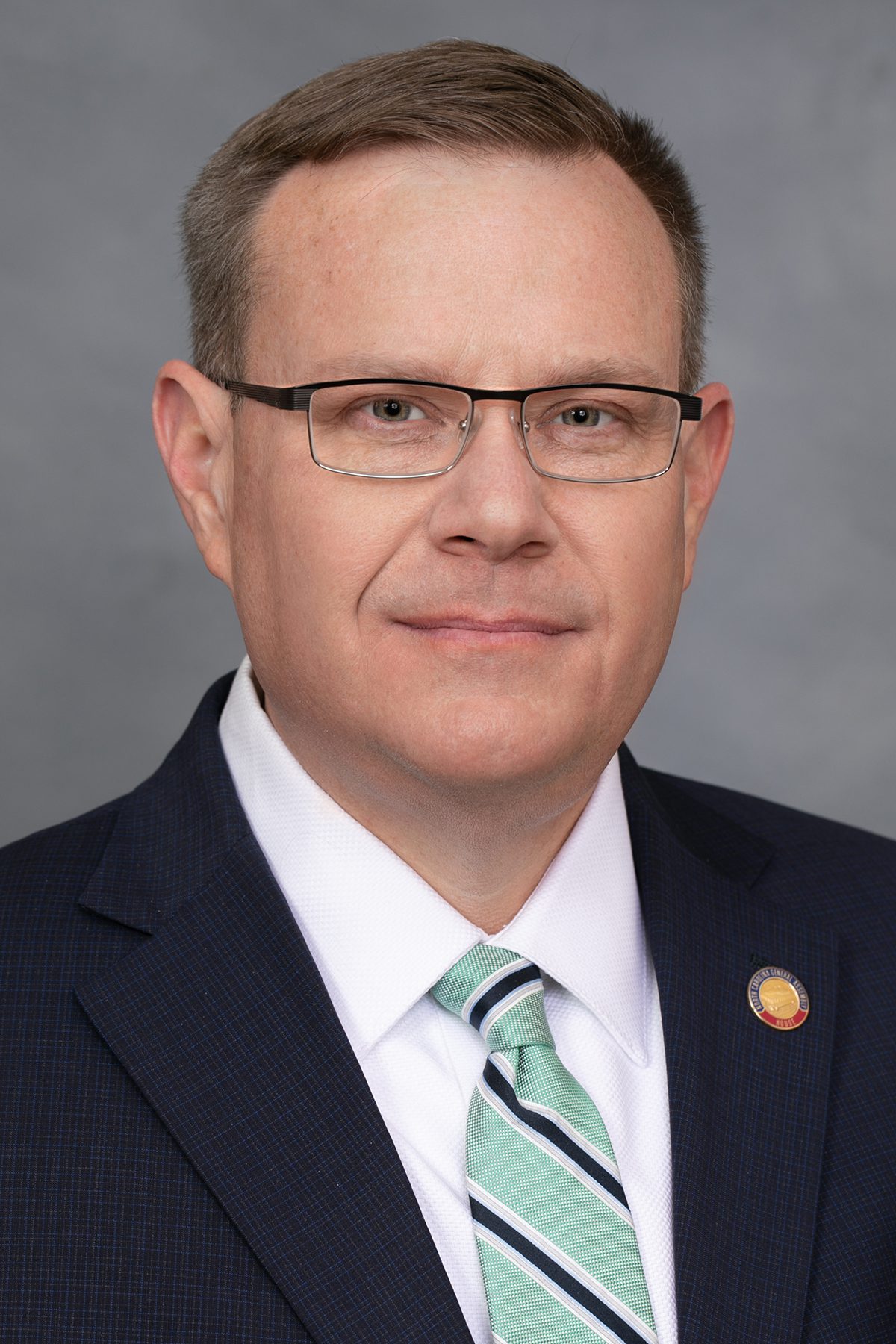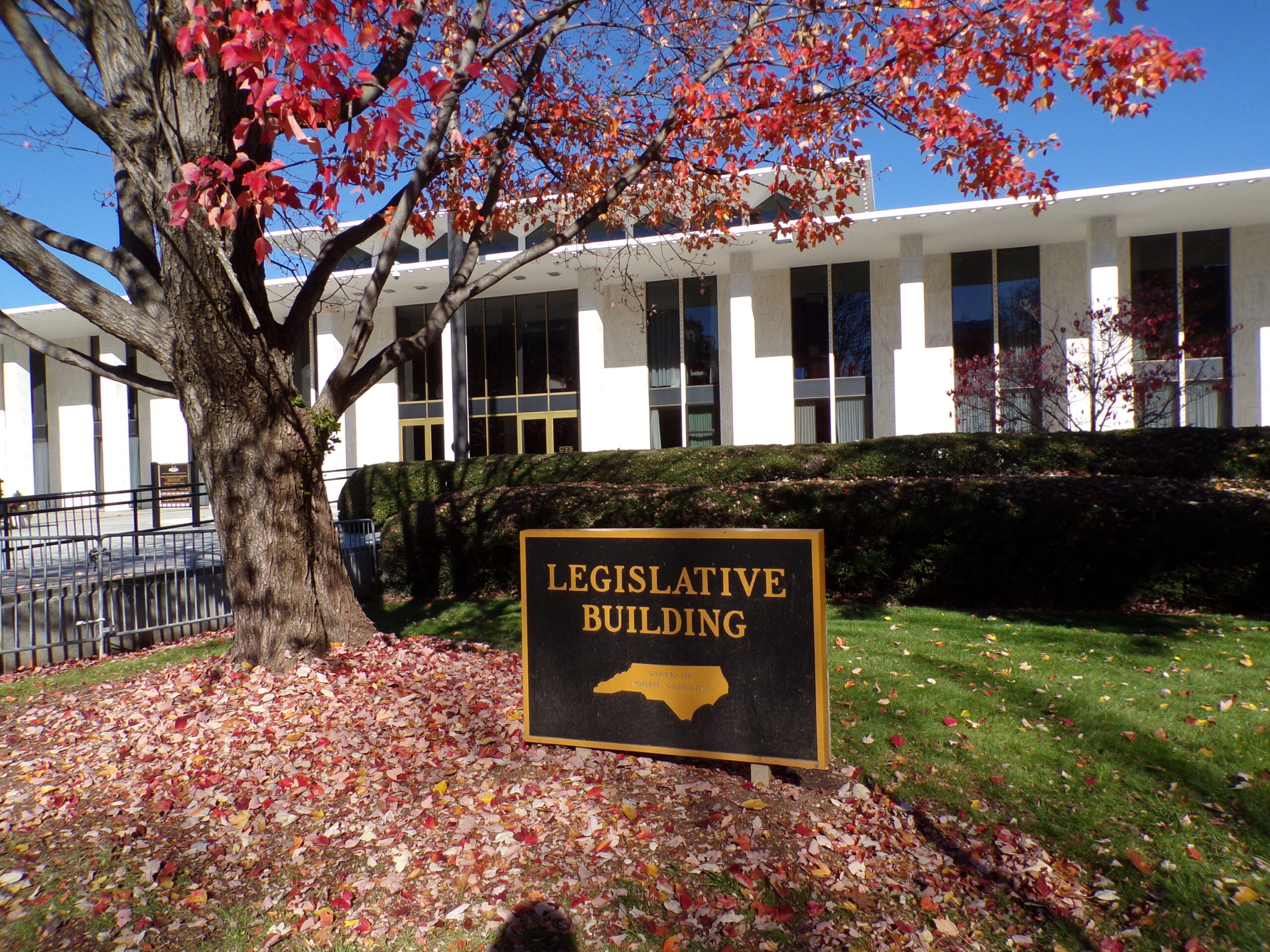
RALEIGH — House Speaker Tim Moore (R-Kings Mountain) recently sat down with North State Journal to discuss the recent midterm results, ongoing legal cases as well as what might be on tap for next year’s long session.

Moore said he felt “very positive” following the 2022 midterm elections, highlighting areas where Republicans outperformed their Democratic opponents.
“You know, we actually won six seats that were presently held by Democratic incumbents. So, that’s a huge flip,” Moore said. “We went from 69 to 71 Republican members.”
The Senate did pick up enough seats for a supermajority but the House came in one seat short. Moore said he wouldn’t change how the results turned out.
“If somebody could say, ‘Well, would you trade and get three seats here and give up one of those Supreme Court seats?’ I wouldn’t take the trade,” said Moore. “I would keep what we have by having both of the Supreme Court seats — absolutely critical. [And] it looks like we finally have some justices that actually will follow the law instead of creating the law as they as they sit there.”
Republican candidates not only won the two state Supreme Court seats that were on the ballot this year, but they also made a clean sweep of the N.C. Court of Appeals races.
Moore explained it’s important to understand that seven seats previously held by Republicans ceased to exist after redistricting.
“One example is Larry Yarborough, who had a seat that had Person County but then got joined with Durham County. That seat was one that just became really a very tough seat for a Republican to win,” Moore said. “But then in the western part of the state — for example, where I am, where we had eight seats in our county grouping — we went to seven.”
He said population shifts played a role in seats in the northeast part of the state and some in the southeastern area as well.
“So for example, Bobby Hannig, who was a House member along with Ed Goodwin,” said Moore. “Bobby and Ed were double-bunked because the population in that area isn’t growing as much as it is and the other parts of the state. So as a result, Bobby ended up running for the Senate, and so you had situations like that.”
Moore said that instead of just picking up three seats, what they really needed to win were 10 seats because Republicans needed to win back seven seats plus another three.
“Well, we got nine. So not bad. Not a bad day’s work,” Moore said with a smile. “We picked back up Steve Ross’ seat — which is critical over in Alamance County,” as well as Frank Sossamon’s win in a multicounty area that includes Vance County.
The speaker also noted Republicans have districts in the state that now have Republican representation for “the first time ever in the history of the state.”
“Now, where we did not perform as well as I would like was in Mecklenburg County and in Wake County,” Moore said. “There’s 13 seats total in Wake County and 13 House seats in Mecklenburg. We only won one seat in each.”
Rep. Erin Paré was the lone Republican to win a House seat in Wake County and Moore acknowledged her strong performance in being reelected. He also expressed regret on certain races where the Republican candidate fell short.
“And then the other one that we had a shot at I think was Fred Von Canon’s race,” Moore said. “I was hoping that we would win that race, and we came up short there. And then Bill Brawley, who was running again in southeastern Mecklenburg County, he came up short. And then the other one that was really close with Brian Echeverria (Cabarrus County) who was … I mean his race was close.”
Moore also noted that Republicans did well in the area of voting-by-mail results.
Shifting gears to recent legal cases, Moore was optimistic despite recent decisions by the former Democratic majority on the state’s top court. That includes the Leandro education funding case.
“I’ve got two lawyers sitting in here, but my plan is to pursue every avenue that we can through the legal case,” Moore said. “But the reality is the General Assembly has the power of the purse, you know.”
When asked about the WestEd Comprehensive Remedial Plan funds the N.C. Supreme Court has dictated be dispersed, both Moore and his general counsel agreed there seemed to be no metric or mechanism in place for determining the effectiveness of that forced spending.
“There’s nothing,” said Moore. “It’s what happens when you have a court trying to act like a legislature — it doesn’t work.”
Another case that could have ramifications statewide and perhaps nationally is the North Carolina redistricting case of Harper v. Moore, which is being heard by the U.S. Supreme Court on Dec. 7. Moore said they “feel positive about the case” since the nation’s high court made the rare decision to accept it.
“I don’t know what they will do,” Moore said. “I don’t know to what extent they would accept the full argument or if they’d take some partial side — I have no clue.”
While Moore was unsure how the Supreme Court justices might rule, when it came to the reporting on the case, in particular, that of the “independent state legislature theory,” Moore had a strong opinion.
“I think it shows the fact that they don’t really have a legitimate legal argument against the issue,” said Moore. “So if you don’t have a valid argument, you just go in and start creating these crazy hypothetical scenarios that aren’t even applicable and try to argue about that. It’s the traditional bait-and-switch.”
Moore also called some of the arguments around the theory “utterly absurd.”
In a Dec. 5 opinion column regarding the case published by the New York Times, North Carolina Democratic Gov. Roy Cooper claimed a decision in favor of the General Assembly by the U.S. Supreme Court would “upend democracy.”
Cooper tweeted a link to the column along with a quote from the text.
“Our democracy is a fragile ecosystem that requires checks and balances to survive,” Cooper tweeted. “Giving state legislatures unfettered control over federal elections is not only a bad idea but also a blatant misreading of the Constitution.”
Soon after, Senate Leader Phil Berger’s (R-Eden) office tweeted back a scathing response.
“This is the Gov that sued to eliminate a bipartisan Board of Elections so he could gain full partisan control,” the press account for Berger tweeted. “This fearmongering from Gov. Cooper is the real threat to democracy. Democrats use the courts to get their way and claim that democracy is in danger when they can’t.”
Moore had not responded to the tweet prior to the filing of North State Journal’s

interview with him, however, he did lend background into how the Moore v. Harper case got all the way to the nation’s top court.
“We got there because we’ve had such a terrible — and you can quote me on that — terrible state Supreme Court…the worst ever in the history of the nation with some of these absurd opinions that they have issued. Whether it’s, you know, freeing sex offenders, whether it’s invalidating a constitutional amendment approved by the people in 2018 and then overstepping their authority when it’s come to congressional, House and Senate redistricting.”
Moore thinks the U.S. Supreme Court realizes this kind of activity by courts has to be “reined in” and it’s “up to them to do it.” He also was clear that they would “certainly try” to “get a reset of the proper scope of power between the legislative and the executive branch” in the upcoming long session.
Referring to the example from a few years ago where lawmakers passed a bill to make the State Board of Elections bipartisan, Moore again took aim at the actions of the state Supreme Court.
“The state Supreme Court — of course, Cheri Beasley was on there then — at that time ruled that interfered with the governor’s executive authority, that he had to have a controlling interest over something like that. Absolutely absurd,” Moore said. “That’s … I mean, that was their rationale.”
He also pointed to litigation involving Cooper’s shutdown of the state during COVID.
“And they basically — there were lawsuits, but no, [the court] basically held that the governor has the authority to do that even without the advice and consent of the Council of State, which the statute spells out,” Moore said. “So, you essentially had a state Supreme Court that was taking away the authority of the legislative branch, the group that’s closest to the people, and giving more and more authority to a governor which is completely the reverse of how our state was established.”
He added: “It is almost like they want to return to the era of the royal governor or something. Fortunately, the people won out.”
Moore said he expected Medicaid expansion to be revisited in the upcoming session.
“With respect to Medicaid, (we are) certainly wanting to continue having that conversation and try to come up with something,” said Moore. “I think we had a good bill that passed, and I would like to see us pursue something along those lines.
“I would like to see us continue to responsibly budget, certainly looking if there’s a way to look at additional tax relief, I would like to look at that. We want to make sure, though, that we have some appropriate safeguards in place in case we hit some financial issues.”
The speaker also said he would like to see behavioral health addressed, calling it “absolutely a critical issue that we have to deal with.”
“(Behavioral health) affects so many things, one of which is the other big issue, workforce development, and workforce retention,” Moore said, adding that he wasn’t just talking about state workers but the private sector as well.
And Moore expects “one hundred percent” to have help from across the aisle in working on issues during 2023. That help may involve revisiting legislation topics previously vetoed by Cooper.
“I would expect you would see us pass legislation this year that we were unable to override vetoes possibly where the governor may sign them,” he said. “And if not, where we should be in a position to override,” Moore said.
Such legislation likely would include “more transparency in education,” such as the Parental Bill of Rights but forth by Berger. Moore added that anything that gave more parental authority over what their children are learning and parental involvement is something he and the House would continue to fight for.
“I’m just honored, for one, to be serving a fifth term as speaker and really wanted to see us keep moving in the direction we’re moving at,” Moore said when asked if he had any items he wanted to tackle in the upcoming session.
“When Sen. Berger and I would go meet at different groups, the word that we both sort of came up with was continuity; continuing to move North Carolina where it is,” said Moore. “It’s not an accident that the state’s doing so well, particularly if you compare it to what’s happening at the national level and the absolute train wreck that’s there, in terms of the budget, in terms of taxes.
“And I mean, no doubt that the failed policies of the Biden administration are still causing this entire nation problems,” said Moore, adding that what we want to do is to “make sure North Carolina is in as strong a position as possible.”




